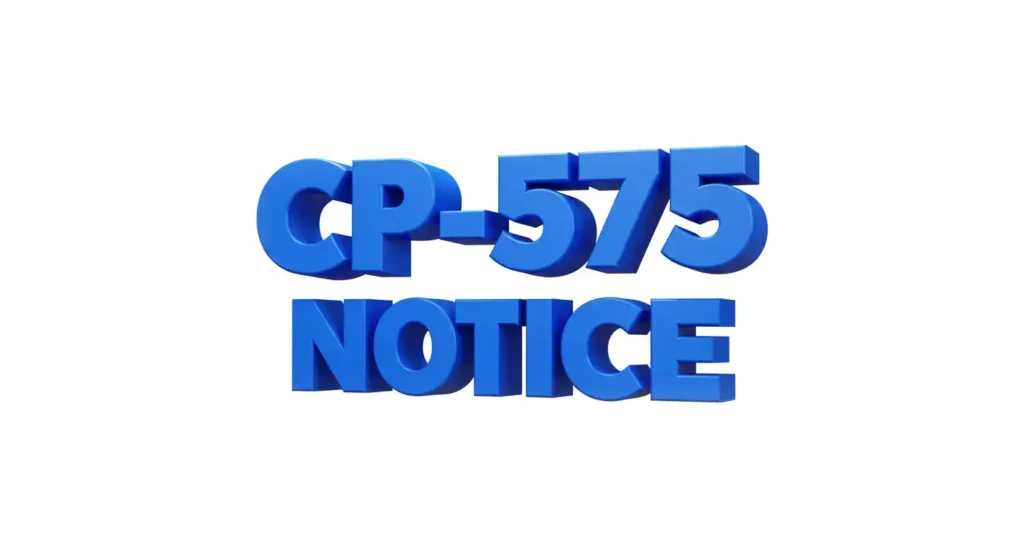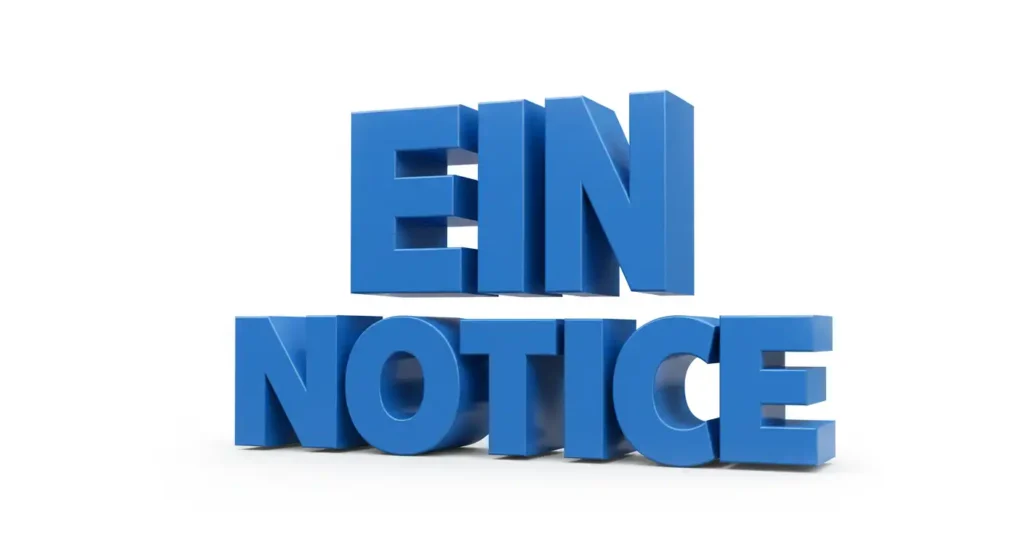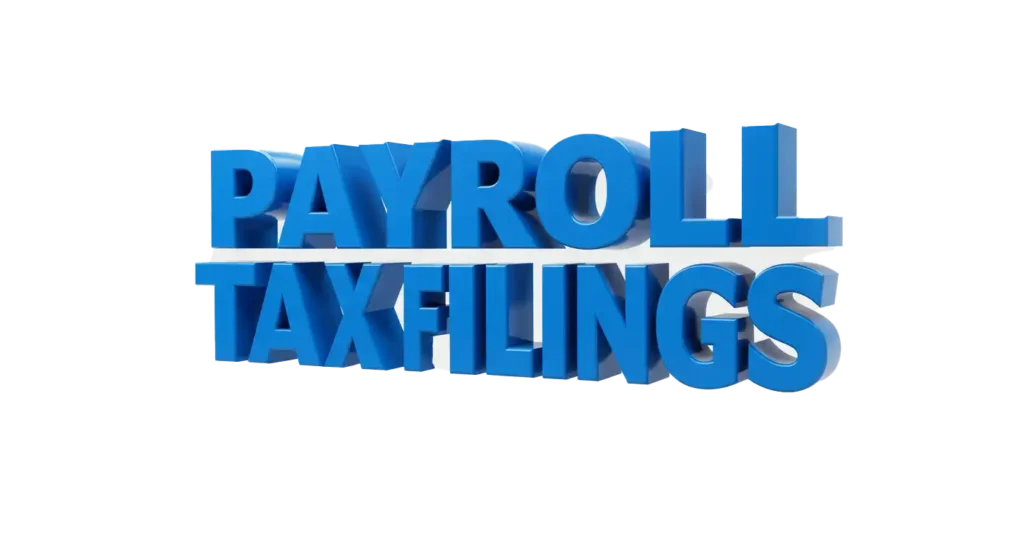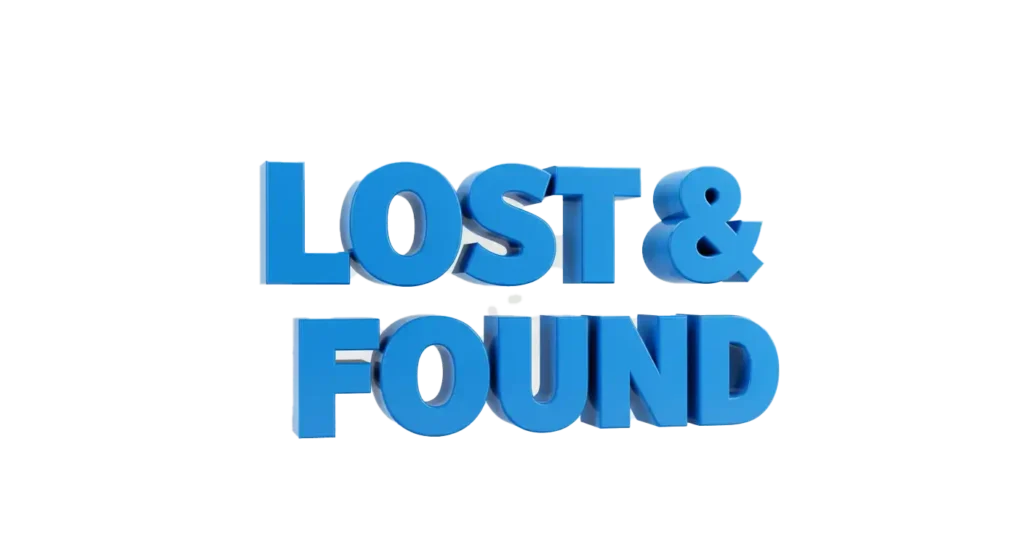CP-575 Notice

CP-575 Notice Key Points
| Topic | Key Points |
|---|---|
| What is a CP-575 Notice? |
- Official IRS document confirming assignment of EIN. - EIN serves as a unique tax identifier for businesses. - Comparable to a "birth certificate" for a business. |
| Why is it Important? |
- Provides proof of EIN for legal and financial purposes. - Required for tax compliance and regulatory filings. - Essential for opening bank accounts and applying for credit. |
| When Do You Need It? |
- Hiring employees or withholding non-wage taxes. - Filing certain tax returns (e.g., excise, employment taxes). - Opening accounts, applying for licenses, or acquiring a business. |
| Information Included |
- EIN, official business name, and mailing address. - List of required tax forms and filing deadlines. - Compliance instructions tailored to business structure. |
| How and When to Receive |
- Online: Immediate digital delivery. - Fax: Within 4 business days. - Mail: 4–5 weeks; only issued once by the IRS. |
| What to Do If Lost |
- Request EIN Verification Letter (147-C) via IRS hotline. - Provide business details for verification. - Can also access online if registered with IRS portal. |
| Legal Implications |
- Establishes business legitimacy with IRS. - Prevents fraud and ensures financial transparency. - Required for licensing, banking, and credit applications. |
| FAQs |
- CP-575 Notice confirms EIN; Letter 147-C replaces lost notice. - Required for corporations, partnerships, and certain tax filings. - Non-U.S. businesses can also receive a CP-575 Notice. |
What is a CP-575 Notice?
The CP-575 is an official notification from the Internal Revenue Service (IRS) confirming the issuance of an Employer Identification Number (EIN) to a business entity. This document, also known as the EIN confirmation letter, contains essential tax-related information about your business, including:
EIN: A unique nine-digit tax identification number assigned by the IRS for federal tax filing purposes.
Business Name: The legal name of your entity as recognized by the IRS.
Business Address: The official mailing address on file with the IRS.
Required Federal Tax Forms: A list of federal tax forms your business is obligated to file, such as Form 941 (Employer’s Quarterly Federal Tax Return), Form 940 (Employer’s Annual Federal Unemployment Tax Return), and Form 1120 (U.S. Corporation Income Tax Return).
Importance of the CP-575 Notice
The CP-575 serves as authoritative proof of your EIN and other pertinent business details. Financial institutions, payroll service providers, government agencies, and other entities may require this document to:
Open Business Bank Accounts and Credit Lines: Establishing financial accounts in your business’s name.
Set Up Payroll Services: Coordinating with payroll providers to manage employee wages and tax withholdings.
Engage with Government Agencies: Facilitating interactions that necessitate verification of your business’s tax identification.
While the EIN alone may suffice in certain situations, possessing the CP-575 ensures you can provide comprehensive verification when required. It’s advisable to store this document securely for future reference.
The Purpose of the EIN
The EIN plays a critical role in the financial and legal operations of a business. It is used to:
- Identify the business when filing tax returns and making tax payments.
- Establish the business as a legal entity recognized by federal authorities.
- Enable businesses to comply with a wide range of regulatory and financial requirements.
Whether a business is applying for loans, hiring employees, or setting up payroll systems, the EIN acts as its primary identifier in interactions with the IRS and other governmental agencies.
The CP-575 Notice: A "Birth Certificate" for Businesses
Think of the CP-575 Notice as the “birth certificate” for your business. Just as a birth certificate formally records the identity of a person, the CP-575 Notice formally confirms the creation of a business in the eyes of the IRS. It not only provides proof of your EIN but also establishes the business’s legal existence for tax and administrative purposes. This document marks the beginning of your business’s journey as a recognized legal entity.
Key Features of the CP-575 Notice
The CP-575 Notice contains vital information that ensures a business is equipped to meet its legal and financial obligations. Key elements typically included in the notice are:
- Employer Identification Number (EIN): The unique nine-digit identifier assigned to your business.
- Business Name: The official name of the business as registered with the IRS.
- Business Mailing Address: The address associated with the business for IRS communications.
- Tax Forms and Requirements: A list of federal tax forms the business is required to file (e.g., Form 941 for payroll taxes, Form 940 for federal unemployment taxes, Form 1120 for corporate income taxes).
- Filing Deadlines: Instructions on key deadlines for tax filing and compliance.
Functions of the CP-575 Notice
- Proof of Legal Entity: Confirms that your business is officially recognized by the IRS, providing credibility in legal and financial dealings.
- Compliance Guide: Outlines tax obligations, filing instructions, and compliance requirements specific to the business structure.
- Verification Document: Often requested by banks, creditors, and government agencies when opening accounts, applying for credit, or obtaining permits and licenses.
- Tax Reporting: Serves as the foundational document for reporting income, employee wages, and other taxable activities.
Obtaining the CP-575 Notice
To receive a CP-575 notice, you must apply for an EIN by submitting Form SS-4 to the IRS. Upon approval, the IRS will mail the CP-575 to the address provided in your application, typically within four to six weeks.
Lost or Misplaced CP-575 Notice
If you cannot locate your CP-575, the IRS does not issue duplicate copies. However, you can request an EIN Verification Letter, known as Form 147C, which serves a similar purpose.
To obtain a 147C letter:
Contact the IRS Business & Specialty Tax Line: Call 1-800-829-4933, available Monday through Friday, 7:00 AM to 7:00 PM local time.
Verify Your Identity: Be prepared to answer security questions to confirm your association with the business.
Receive the 147C Letter: Choose to have the letter sent via mail, which takes about four to six weeks, or via fax, which can be completed during your call.
The 147C letter can then be used as official verification of your business’s EIN, name, and address.
Note for Sole Proprietors
Sole proprietors without employees may use their Social Security Number (SSN) for business activities and tax filings, eliminating the need for an EIN and, consequently, a CP-575 notice. However, obtaining an EIN can provide additional privacy and separation between personal and business finances.
Why is the CP-575 Notice Important?
The CP-575 Notice serves as a foundational document for any business, playing a vital role in ensuring smooth operations and compliance with federal, financial, and legal requirements. Its importance stems from several key functions that support the business’s ability to operate effectively and meet its obligations.
Proof of EIN
The CP-575 Notice acts as the official verification of your Employer Identification Number (EIN). Since the EIN is a unique identifier for your business, this notice serves as undeniable proof that your business is registered with the IRS. Banks, creditors, and government agencies often require this document to confirm your business’s identity before offering services or granting approvals.
Without this proof, businesses may face delays in setting up critical operational tools, such as payroll systems, tax accounts, or financial services.
Legal Recognition
The CP-575 Notice establishes your business as a recognized legal entity in the eyes of the IRS. This recognition is essential for accessing benefits, protections, and opportunities reserved for legitimate businesses, such as:
- The ability to enter into legal contracts.
- Eligibility for tax advantages and deductions.
- Access to government grants or funding programs.
For businesses operating across state lines or internationally, the CP-575 Notice also serves as evidence of compliance with U.S. federal regulations.
Tax Compliance
One of the most critical roles of the CP-575 Notice is in facilitating tax compliance. It outlines the business’s tax responsibilities, including the forms required for reporting income, employee wages, or other taxable activities. By providing the EIN, the notice ensures businesses can:
- File required federal and state tax forms (e.g., Form 941 for payroll taxes).
- Report employee wages and withhold taxes accurately.
- Claim tax deductions or credits specific to their business type.
Failing to provide a valid EIN or meet these obligations can lead to penalties, audits, or legal complications.
Financial Transactions
The CP-575 Notice is often a prerequisite for accessing financial services. Banks, lenders, and credit card providers commonly request this document during:
- Opening business bank accounts.
- Applying for business loans or lines of credit.
- Setting up merchant accounts for credit card processing.
Having the CP-575 Notice readily available streamlines these processes, ensuring businesses can establish essential financial tools without unnecessary delays.
Government Compliance
Operating a business requires compliance with various government regulations, and the CP-575 Notice plays a critical role in meeting these requirements. It is frequently required when:
- Applying for business licenses and permits.
- Registering for sales tax or unemployment insurance.
- Submitting applications for government contracts.
The CP-575 Notice confirms that your business is recognized by the IRS and is operating within legal parameters, reducing the risk of operational disruptions or fines.

EIN Notice Example
Internal Revenue Service
Employer Identification Number (EIN): 34-7427139
Form: SS-4
Notice Number: CP 575 A
Call: 1-800-829-4933
Write: Include the stub at the end of this notice.
NEW COMPANY NAME
C/O JOHN DOE
123 MAIN STREET
ANYTOWN, USA 12345
Based on the information provided, you are required to file the following form(s) by the date(s) specified:
| Form | Due Date |
|---|---|
| Form 1120 | March 15, 2025 |
We assigned you a tax classification based on the information received. This classification is not a legal determination and is not binding on the IRS. If you require a legal determination, you may request a private letter ruling by following Revenue Procedure 2004-1, or its successor.
If you intend to elect to file your return as a small business corporation (S Corporation), this election must be made within specific timeframes and the corporation must meet certain requirements. Detailed information can be found in the instructions for Form 2553, Election by a Small Business Corporation.

When Do You Need a CP-575 Notice?
The CP-575 Notice is a critical document for various business situations, especially when establishing, expanding, or restructuring your business operations. Below are the key scenarios where having this notice is essential, along with examples and explanations.
Hiring Employees
If your business employs workers, the IRS requires you to have an EIN to:
- Report employee wages.
- Withhold and remit payroll taxes.
- File forms such as Form W-2 (Wage and Tax Statement) and Form 941 (Employer’s Quarterly Federal Tax Return).
Example: A retail store owner hires their first employee and must set up payroll taxes. To comply with federal regulations, they provide the CP-575 Notice to their payroll service provider to confirm the EIN.
Operating as a Corporation, Partnership, or Multi-Member LLC
Businesses structured as corporations, partnerships, or multi-member limited liability companies (LLCs) must have an EIN for tax and legal purposes. These structures often require the CP-575 Notice to validate their tax identity during registration and operations.
Example: Two friends form an LLC to run a consulting business. As a multi-member LLC, they are required to obtain an EIN and use the CP-575 Notice to open a business bank account and file taxes.
Filing Specific Tax Returns
Certain types of businesses, regardless of structure, are mandated to file specific tax returns. For instance:
- Excise taxes for businesses involved in fuel, alcohol, or tobacco.
- Employment taxes for businesses with employees.
- Returns for trusts, estates, or non-profits.
Example: A brewery files excise tax returns for the production and sale of alcoholic beverages. The brewery owner uses the CP-575 Notice to ensure all forms are correctly filed under their EIN.
Withholding Taxes Beyond Wages
Businesses that withhold taxes on non-wage income, such as independent contractor payments, are required to have an EIN. This ensures proper reporting and compliance with tax regulations.
Example: A graphic design firm hires a freelancer and withholds federal taxes from their payment. The firm provides its EIN, as listed on the CP-575 Notice, on Form 1099 to report the freelancer’s earnings to the IRS.
Managing Certain Organizations
Entities such as trusts, estates, non-profits, and retirement plans are often required to have an EIN. The CP-575 Notice confirms their legal recognition and facilitates compliance with reporting and tax requirements.
Example: A non-profit organization applies for tax-exempt status with the IRS. The CP-575 Notice is included in the application to verify the organization’s EIN and legal identity.
Acquiring an Existing Business or Restructuring Ownership
When purchasing an existing business or making significant ownership changes, a new EIN is often required, and the CP-575 Notice serves as proof of the updated entity’s identity.
Example: A business owner buys a restaurant and reorganizes it as a new legal entity. To secure a liquor license and set up payroll accounts, they provide the CP-575 Notice with the newly assigned EIN.
Examples and Scenarios
Here are additional situations where the CP-575 Notice is crucial:
- Opening a Business Bank Account: Most financial institutions require the CP-575 Notice to verify the EIN before allowing you to open a business account.
- Applying for Business Credit or Loans: Lenders often request the CP-575 Notice to validate the business’s identity and financial history.
- Registering for Local or State Taxes: State tax authorities may ask for the CP-575 Notice to confirm your EIN during registration for sales tax or other state-specific requirements.
- Applying for Government Contracts: Businesses bidding on government projects need to provide the CP-575 Notice as part of the compliance and verification process.
Information Included in a CP-575 Notice
The CP-575 Notice provides essential details that confirm your business’s legal identity and guide its compliance with IRS requirements. Understanding the information contained in this document is crucial for managing tax obligations, financial transactions, and regulatory compliance.
Employer Identification Number (EIN)
The Employer Identification Number (EIN) is the centerpiece of the CP-575 Notice. This nine-digit number is unique to your business and is assigned by the IRS for tax identification purposes. It is used in nearly all interactions with the IRS, including:
- Filing tax returns.
- Reporting employee wages.
- Withholding and remitting taxes.
Example: Your EIN is included on payroll tax filings (Form 941) and income tax returns (Form 1120 for corporations).
Official Business Name
The CP-575 Notice lists the exact legal name of your business as it appears in IRS records. This ensures that your business is properly identified and avoids discrepancies in financial, tax, or legal documents.
Why It’s Important: Consistency in your business name across all documents, including tax filings and bank records, prevents delays or rejections in processing important transactions.
Business Mailing Address
The IRS uses the mailing address listed on the CP-575 Notice as the primary contact address for your business. This is where you will receive:
- IRS correspondence, including tax reminders and notices.
- Important updates about changes to tax laws or requirements.
Note: Keeping this address up to date with the IRS is crucial to ensure you receive all necessary communications.
Tax Forms Required for Filing
The CP-575 Notice includes a list of federal tax forms your business is required to file, based on its structure and activities. These forms may include:
- Form 941: Employer’s Quarterly Federal Tax Return.
- Form 940: Employer’s Annual Federal Unemployment Tax Return.
- Form 1120: Corporate Income Tax Return (for C corporations).
- Form 1065: Partnership Return (for partnerships).
Example: A corporation will see Form 1120 listed on its CP-575 Notice, while a business with employees will find Form 941 and Form 940.
Filing Deadlines and Compliance Instructions
To help businesses stay compliant, the CP-575 Notice outlines filing deadlines and compliance instructions for the required tax forms. These details include:
- The due dates for quarterly or annual filings.
- Guidelines on when and how to submit the forms.
- Information on penalties for late or incorrect filings.
Example: Businesses required to file Form 941 are reminded to submit it quarterly, typically by the end of the month following the end of each quarter (e.g., April 30 for Q1).

How and When Will You Receive the CP-575 Notice?
Receiving your CP-575 Notice is a straightforward process, but the delivery time depends on how you apply for your Employer Identification Number (EIN). Understanding the application methods and expected timelines can help you plan ahead and ensure you have this critical document when needed.
Application Methods and Delivery Timelines
Online Applications
- Delivery Time: Immediate digital delivery.
- Details: Applying for an EIN online is the fastest method. Once the application is approved, the CP-575 Notice is available for download immediately. This option is especially useful for businesses needing the notice quickly for banking, licensing, or other time-sensitive purposes.
- Steps to Access:
- Complete the EIN application on the IRS website.
- Receive and download the CP-575 Notice as a PDF.
Example: A sole proprietor applying online for an EIN to open a business bank account can instantly download the CP-575 Notice and present it to the bank.
Fax Applications
- Delivery Time: Within four business days.
- Details: If you submit your EIN application by fax, the IRS typically processes it within four business days. The CP-575 Notice is then faxed back to the number provided on the application.
- Steps to Access:
- Complete IRS Form SS-4 (Application for EIN).
- Fax the form to the appropriate IRS fax number for your state.
- Wait for the CP-575 Notice to be faxed back.
Example: A small business that needs an EIN but lacks internet access may choose the fax method for a relatively quick turnaround.
Mail Applications
- Delivery Time: Approximately four to five weeks.
- Details: If you apply for an EIN by mail, the IRS processes the application and sends the CP-575 Notice to your mailing address. This method is the slowest and is generally used when digital or fax options are unavailable.
- Steps to Access:
- Complete IRS Form SS-4.
- Mail the form to the appropriate IRS address listed for EIN applications.
- Wait for the CP-575 Notice to arrive by post.
Example: A non-profit organization applying for an EIN by mail should factor in the four-to-five-week processing time when planning for operations that require the CP-575 Notice.
Importance of Safeguarding the CP-575 Notice
The CP-575 Notice is issued only once by the IRS, making it a critical document to secure. Losing the original can lead to delays and additional administrative steps if you need proof of your EIN in the future. Here’s why safeguarding this document is essential:
- Tax Compliance: The EIN on the CP-575 Notice is required for filing tax returns and making payments.
- Financial Transactions: Banks, lenders, and vendors often request the original CP-575 Notice for verification.
- Regulatory Compliance: Many licenses, permits, and contracts require the CP-575 Notice as proof of the business’s legal identity.
Tips for Keeping It Safe:
- Store the document in a secure physical location, such as a safe or locked file cabinet.
- Keep a digital copy (if received electronically) in a password-protected folder or cloud storage.
- Limit access to trusted personnel to prevent unauthorized use.
What to Do If You Lose Your CP-575 Notice
Losing your CP-575 Notice can be inconvenient, but the IRS offers solutions to help you verify your EIN and continue your business operations without interruption. The primary alternative is requesting a replacement document, known as the EIN Verification Letter (147-C). This replacement serves a similar purpose to the CP-575 Notice and is widely accepted as proof of your EIN.
Steps to Request a Replacement (Letter 147-C)
Contact the IRS Business & Specialty Tax Line
- Phone Number: Call 800-829-4933 to speak with an IRS representative.
- Hours of Operation: The Business & Specialty Tax Line is typically available during standard business hours (8:00 a.m. to 8:00 p.m. local time).
- Purpose: Inform the representative that you need an EIN Verification Letter (147-C) to replace your lost CP-575 Notice.
Provide Required Information for Verification To process your request, the IRS representative will ask for the following details to verify your identity and ensure you are authorized to access the EIN:
- EIN: If available, provide the number assigned to your business.
- Legal Business Name: Match the name exactly as registered with the IRS.
- Business Address: Provide the mailing address associated with the original EIN application.
- Authorized Contact Information: Only an authorized individual (e.g., the business owner or principal officer) can request the replacement.
Choose a Delivery Method
- Fax: The IRS can fax the Letter 147-C directly to you for faster delivery.
- Mail: If faxing is not an option, the IRS can send the letter via postal mail, which may take several days to arrive.
Using the IRS Online Portal
For businesses with an IRS online account, it may be possible to view and print notices, including EIN-related documents. Here’s how:
- Log in to your IRS online account at irs.gov.
- Navigate to the “View and Print Notices” section.
- Check if the CP-575 Notice or related documentation is available for download.
- Print the document for immediate use.
Note: If you haven’t already created an IRS online account, you may need to register and complete an identity verification process before accessing the portal.
Key Considerations
- Safeguard Your 147-C Letter: Just like the CP-575 Notice, the EIN Verification Letter should be securely stored, as it may be needed for future transactions or applications.
- Keep Records Updated: Ensure the IRS has the most current contact information for your business to avoid delays in receiving critical documents.
- Plan for Processing Time: While fax delivery is quicker, mailing the 147-C Letter may require additional time. Request the document as soon as you realize the original CP-575 Notice is missing.

Differences Between the CP-575 Notice and Letter 147-C
| Aspect | CP-575 Notice | Letter 147-C |
|---|---|---|
| Issuance | Issued only once when the EIN is first assigned. | Issued upon request as a replacement. |
| Format | Original notice, often used as the primary proof. | Replacement letter with updated information. |
| Delivery Method | Digital, fax, or mail upon EIN application. | Typically faxed or mailed upon request. |
| Contents | Includes EIN, business name, address, tax forms, and deadlines. | Confirms EIN and basic business details. |
| Usage | Preferred for opening accounts and official processes. | Accepted as a substitute for the CP-575 Notice. |
Legal Implications of the CP-575 Notice
The CP-575 Notice is more than just a document confirming your Employer Identification Number (EIN). It carries significant legal weight, establishing your business’s legitimacy and enabling it to operate within the framework of federal, state, and local regulations. Below are the key legal implications of the CP-575 Notice:
Establishing the Business’s Legal Identity with the IRS
The CP-575 Notice serves as official proof that your business is recognized as a legal entity by the IRS. This recognition is essential for:
- Compliance with Tax Laws: The EIN provided in the notice identifies your business in all interactions with the IRS, from filing tax returns to remitting payments.
- Credibility and Trust: A legitimate EIN, verified by the CP-575 Notice, adds credibility to your business in dealings with clients, vendors, and partners.
Example: A business applying for federal grants or contracts will often need to present the CP-575 Notice to demonstrate its IRS-recognized legal identity.
Fraud Prevention and Financial Transparency
The CP-575 Notice plays a vital role in reducing fraud and ensuring accountability in financial transactions:
- Preventing Identity Theft: Banks, government agencies, and lenders use the notice to verify the EIN against IRS records, ensuring the business is legitimate and the EIN is not being misused.
- Ensuring Transparency: The notice provides the information required to match financial records with tax filings, promoting transparency in audits and compliance reviews.
Example: When applying for a business loan, the CP-575 Notice ensures the financial institution can verify your EIN directly with IRS records, minimizing risks of fraudulent activity.
Requirements for Business Operations
The CP-575 Notice is often required for essential business activities, making it a critical document for operations. Common scenarios include:
- Licensing and Permits: Many states and local governments require the CP-575 Notice as part of the application process for business licenses and permits.
- Banking and Financial Services: Banks typically request the CP-575 Notice to open business accounts, establish lines of credit, or set up merchant accounts for payment processing.
- Credit Applications: Vendors and suppliers may request the notice to verify the business’s legitimacy before extending trade credit.
Example: A new business opening a retail storefront uses the CP-575 Notice to secure a sales tax permit from the state government and set up a merchant account with a credit card processor.
- Importance: Avoid burnout and underutilization of PTO benefits by taking time off regularly throughout the year.
- Implementation: Schedule shorter breaks every few months instead of saving all days for one long vacation. This helps maintain productivity and mental health over the long term.
FAQ: CP-575 Notice
1. What is the difference between a CP-575 Notice and an EIN?
The EIN is the nine-digit Employer Identification Number assigned to a business for tax identification purposes, while the CP-575 Notice is the official IRS document confirming the assignment of the EIN. Think of the EIN as the unique identifier and the CP-575 Notice as the proof of that identifier.
2. Do I need to provide my CP-575 Notice to employees?
No, the CP-575 Notice is not typically shared with employees. It is meant for use in official business dealings, such as with the IRS, financial institutions, and government agencies. Employee tax forms, such as Form W-2, may include your EIN, but the CP-575 Notice itself is not required for this purpose.
3. Can I operate my business without a CP-575 Notice?
Yes, technically, you can operate your business without the CP-575 Notice as long as you know your EIN. However, many institutions and agencies may request the CP-575 Notice to verify your EIN for banking, licensing, and credit applications. Losing or misplacing the notice can lead to administrative delays.
4. Can I use a copy of my CP-575 Notice, or is the original required?
Most institutions will accept a copy of the CP-575 Notice as long as it is legible and matches IRS records. However, for some official processes, such as certain state licensing applications, an original or certified copy may be required. Always check with the requesting entity to confirm their requirements.
5. What happens if my business changes its name or address?
If your business undergoes a name or address change, you must notify the IRS to update their records. While the CP-575 Notice is not reissued, the IRS will update the information linked to your EIN. You may request an EIN Verification Letter (147-C) to reflect the updated details.
6. Is a CP-575 Notice required for sole proprietors?
Sole proprietors who use their Social Security Number (SSN) instead of an EIN for tax purposes do not receive a CP-575 Notice. However, sole proprietors who hire employees, file excise taxes, or meet other EIN requirements will receive a CP-575 Notice upon obtaining an EIN.
7. Can non-U.S. businesses receive a CP-575 Notice?
Yes, non-U.S. businesses that need an EIN for conducting business in the United States, such as opening U.S. bank accounts or filing U.S. taxes, can receive a CP-575 Notice. These businesses must apply for an EIN using IRS Form SS-4 and provide required identification and documentation.
8. Is there a fee to apply for an EIN or receive a CP-575 Notice?
No, applying for an EIN and receiving the CP-575 Notice from the IRS is free of charge. Be cautious of third-party services or websites that may attempt to charge fees for applying on your behalf.
9. Can I obtain a certified copy of my CP-575 Notice?
The IRS does not provide certified copies of the CP-575 Notice. However, you can request a replacement EIN Verification Letter (147-C), which serves as an official verification of your EIN and is accepted in place of the CP-575 Notice.
10. How long should I keep my CP-575 Notice?
You should keep your CP-575 Notice indefinitely as part of your business records. It may be required for future transactions, audits, or changes to your business structure. Storing both physical and digital copies is recommended for safekeeping.
11. Can I update the details on my CP-575 Notice?
The CP-575 Notice itself cannot be updated once issued, as it reflects the information provided at the time of application. However, you can update your business details (e.g., name, address) with the IRS, and these updates will be linked to your EIN. A Letter 147-C will reflect the current information.
12. What should I do if the CP-575 Notice contains errors?
If you discover errors in your CP-575 Notice (e.g., incorrect business name or address), contact the IRS Business & Specialty Tax Line at 800-829-4933. They will correct the errors in their system, but a new CP-575 Notice will not be issued. Instead, they may provide a corrected EIN Verification Letter (147-C).
13. Is the CP-575 Notice valid internationally?
Yes, the CP-575 Notice can be used internationally to prove your EIN for tax purposes or when working with global financial institutions and government entities. However, you may need to supplement it with additional documentation depending on the specific requirements of the foreign entity.
14. Can multiple businesses share the same CP-575 Notice?
No, the CP-575 Notice is unique to a single EIN and business entity. Each business must have its own EIN and corresponding CP-575 Notice issued by the IRS.

Disclaimer: The content provided on this webpage is for informational purposes only and is not intended to be a substitute for professional advice. While we strive to ensure the accuracy and timeliness of the information presented here, the details may change over time or vary in different jurisdictions. Therefore, we do not guarantee the completeness, reliability, or absolute accuracy of this information. The information on this page should not be used as a basis for making legal, financial, or any other key decisions. We strongly advise consulting with a qualified professional or expert in the relevant field for specific advice, guidance, or services. By using this webpage, you acknowledge that the information is offered “as is” and that we are not liable for any errors, omissions, or inaccuracies in the content, nor for any actions taken based on the information provided. We shall not be held liable for any direct, indirect, incidental, consequential, or punitive damages arising out of your access to, use of, or reliance on any content on this page.
Trusted By
Trusted by 3.2M+ Employees: 20 Years of Service Across Startups to Fortune 500 Enterprises
Join our ever-growing community of satisfied customers today and experience the unparalleled benefits of TimeTrex.










Strength In Numbers
Join The Companies Already Benefiting From TimeTrex
Time To Clock-In
Start your 30-day free trial!
Experience the Ultimate Workforce Solution and Revolutionize Your Business Today
- Eliminate Errors
- Simple & Easy To Use
- Real-time Reporting

Saving businesses time and money through better workforce management since 2003.
Copyright © 2025 TimeTrex. All Rights Reserved.


